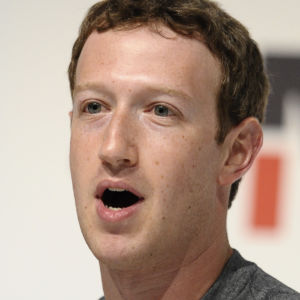Editor’s Note: For another viewpoint, see Critics Can’t Decide if Facebook Does Too Much or Too Little.
In recent weeks, President Trump ran an ad on Facebook with discredited allegations about former vice president Joe Biden’s relationship with Ukraine. Despite requests from Biden’s campaign to take down the ad, Facebook refused, stating the ad didn’t violate its policies on political advertising. Facebook’s new policy exempts politicians’ political ads from third-party fact-checkers.
The exemption effectively allows any politician to run ads on the platform that contain deceptive, false or misleading information. Given the president’s propensity to lie, it’s easy to understand why many are calling this the “Trump exemption.”
Facebook’s reasoning for this exemption is that it prioritizes free expression and deems political speech as newsworthy content that should not be subject to the platform’s community standards. To be sure, free expression is an important value to uphold in our democracy. But the rise of social media platforms has changed the way we receive news and information compared to traditional media platforms.
Political candidates are also spending an increasing amount of money to run ads on social media to reach and influence voters. That’s why Facebook’s hands-off policy toward political ads poses a danger to our democracy. Giving politicians free rein to spread lies using political ads shows a disregard for the role Facebook and other social media platforms play in disseminating information to voters and how political candidates can abuse these policies to spread disinformation.
First, it’s important to understand the unique role Facebook and other social media platforms play when it comes to advertising. Facebook’s business model is based on collecting as much data on its users as possible. It then shares relevant data points including users’ demographic information with advertisers for targeted advertising. This means political candidates can target their ads to vulnerable communities who may be more receptive to false or misleading statements.
This is inherently different from political ads aired on traditional media (broadcast stations or cable networks) where the entire viewing audience can see the ad.
Political candidates have exploited Facebook’s targeted advertising capabilities in the past. For example, in 2016 then-candidate Trump ran ads on Facebook targeting African-Americans to discourage them from voting in the election. Now, the president is taking advantage of Facebook’s ad exemption policy to run ads with misleading statements targeting senior citizens.
Facebook believes that voters should decide for themselves what politicians are saying. But when politicians can target a subset of voters with false and misleading information, it diminishes the ability to openly debate these claims, erects barriers to voter participation and ultimately undermines the integrity of our elections.
Second, Facebook believes its ad exemption policy allows it to remain neutral when it comes to political advertising. But Facebook is not a content neutral platform. That is to say, Facebook displays content to its users based on algorithms that optimize for engagement.
Content on the platform that generates the most engagement tends to be provocative speech, misinformation or sensationalist stories. Allowing politicians to run ads with false statements takes advantage of Facebook’s engagement-focused algorithms to amplify harmful content.
It should come as no surprise that Trump’s recent ad with misleading statements on Biden received millions of views. By choosing to exempt political ads, Facebook is not remaining neutral but instead promoting content that is more inflammatory and damaging to our democracy.
So the question becomes how should Facebook handle ads from political candidates that contain false or misleading statements. The easiest solution would be for Facebook to stop running political ads all together. In fact, Twitter announced Wednesday that it would stop allowing all political ads, recognizing that this type of content poses unique risks on social media platforms. Twitter’s announcement puts more pressure on Facebook to come to the same conclusion and ban all political ads.
But even if Facebook refuses to do this, there are certainly steps it could take to mitigate the harms from deceptive political ads. For example, Facebook could limit the ability for political candidates to run ads that are micro-targeted to specific communities. Facebook could also label political ads with disclaimers that have not gone through third-party fact-checking. Whatever steps Facebook takes, it’s clear that the platform cannot stand idly by and allow politicians to spread disinformation.
The 2016 presidential election proved how foreign actors can use social media to spread disinformation campaigns and sow discord among voters to influence electoral outcomes With the 2020 election around the corner, Facebook’s exemption policy invites politicians to imitate Russia’s disinformation playbook to undermine our elections and put our democracy at risk.

